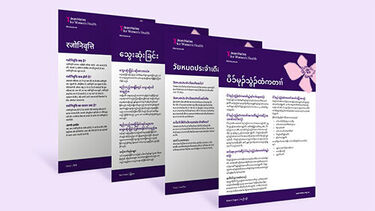Polycystic ovarian syndrome (PCOS) is a condition associated with increased levels of two hormones in the body – insulin and androgens (male-type hormones) – that cause symptoms such as irregular periods, excessive facial and body hair, pimples and weight gain.
The condition affects 1 in 10 women and is more common in some high-risk groups, such as Aboriginal and Torres Strait Islander women.
Learn more about PCOS symptoms, causes, diagnosis and treatments. Plus, practical ways to improve your physical health and emotional wellbeing.






This content has been reviewed by a group of medical subject matter experts, in accordance with Jean Hailes policy.
© Jean Hailes Foundation. All rights reserved.